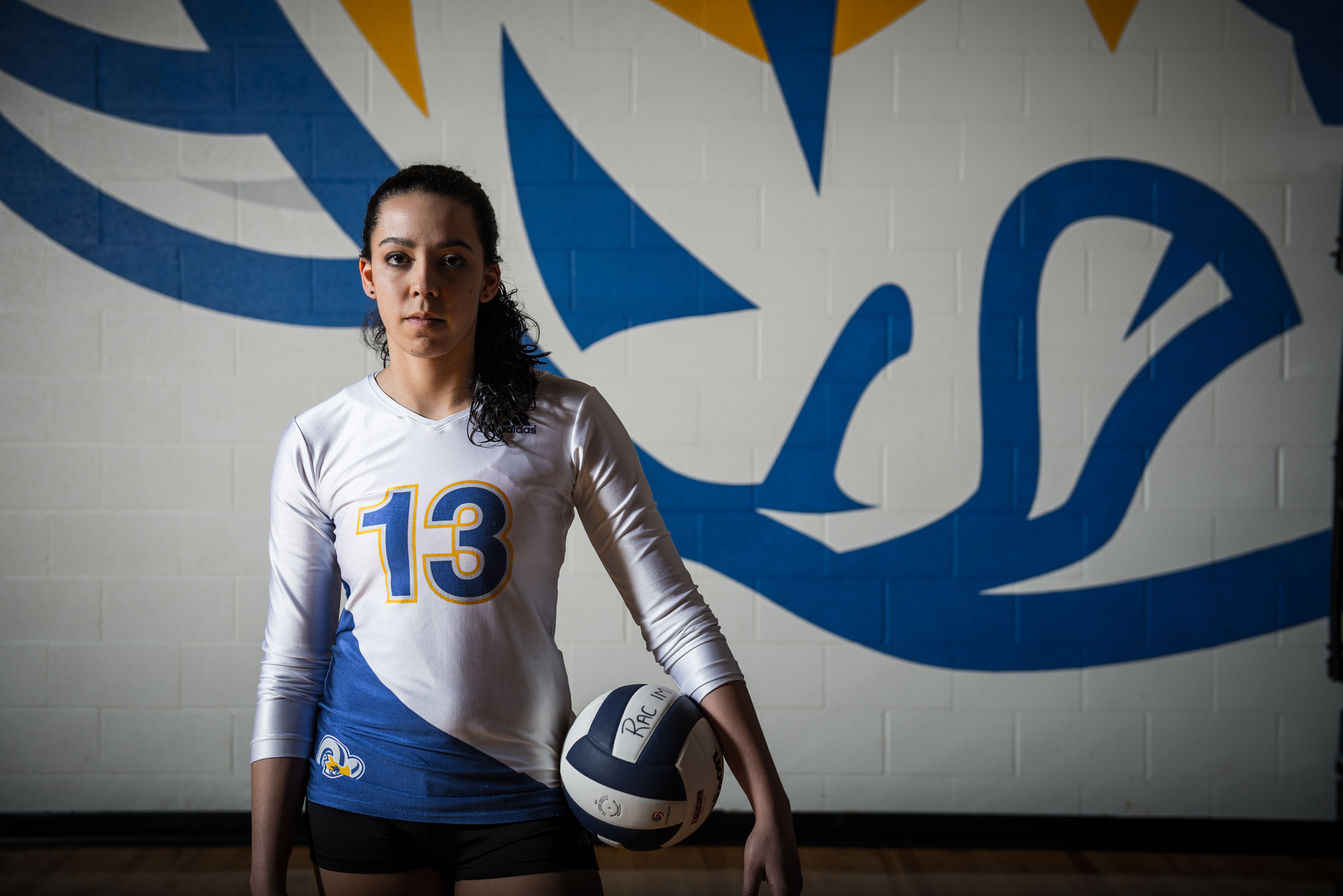By Shannon Baldwin
Chelsea Briscoe was never supposed to be a Ram. But three weeks before the deadline to apply elsewhere, Laurier — the school she had committed to — suddenly announced they were getting rid of their volleyball team. And for Briscoe, not playing volleyball simply wasn’t an option. So she chose Ryerson.
“I would say to my coach that school came first, but if you ask any of the athletes, well no, my sport comes first,” Briscoe says. “Even as a team we know when school comes first and when volleyball comes first.”
This season, Chelsea became a first-team OUA All-star while leading the team to a 14-4 record — the best in team history. While they lost both the semi-final and bronze medal match at the OUA Final Four, Briscoe says it was good for the team to experience what it’s like to play under a lot of pressure and it was also a good mental lesson about awareness for herself.
She says she felt “like such an idiot” after the bronze medal match against the University of Toronto because she had watched the ball hit the ground and not even realized that it was the game point.
“[I thought] ‘oh my god, that was me who messed up that last point’ or a miscommunication that involved me… we lost.”
Briscoe says as a team, they make an effort not to point fingers, but she should have known it was the game point, and that’s an aspect she needs to pay more attention to.
Briscoe is serious when she plays — not jumping around or cheering like some of the other girls on the team do.
“For the most part I’m not very cheery, more so in our warm up. I give high-fives and stuff, I’ll do that — I’m all for high-fives — but I need to get in the zone because if I’m not in the zone before the game, then it’s going to take six points to get there,” she says. “Once I get going, I’m good.”
Briscoe says that even though she’s so intense on the court, she’s actually having a lot of fun while she plays, and sometimes she does join in the noise — when she feels it’s warranted.
When the women’s team surpassed their goal of winning three or four games in the first semester long before it was over (they actually won their first five), Briscoe says this added a lot of energy to the team and may have been part of the reason why she was cheering more. She says that having a lot of the same girls on the team that all started at the same time helped because they already knew how to work with each other and build on the previous year.
“We have the talent but last year we didn’t do a good job picking teams apart,” Briscoe says. “ [Now] we make teams hate themselves because we don’t let them do the things they want to do and eventually they break down.”
She says her coach Dustin Reid has even suggested she use her calm demeanor to help her teammates when they begin to stress and let the pressure get to them.
“There’s really only one incident this year where I had to grab someone and say, ‘You need to calm down,’” she says. “If one person’s down it’s like a plague and everyone’s in the dumps.”
When they don’t play to their best and allow other teams to win, Briscoe says Reid will run drills that could go anywhere from half an hour to several — depending on their hustle.
After the team seemed to give up during a loss in her first year, Reid told the girls that if they wanted to stay on the team, they had to show up at 4 a.m. to do boards — a drill in which you wrap a towel around a two-by-four and have to push it around the gym with your hands.
“It’s only you on the court and Dustin’s throwing balls everywhere,” she says. “I cried that night because I was so dead and didn’t want to be there.”
Briscoe says having to do that drill was the first time she had ever seen Reid like that since he’s not a “yell-in-your-face kind of guy,” but it worked.
“It’s kind of become a tradition,” Briscoe says. “It was a punishment, but now it’s a reminder that we’re not going to be that team [that gives up.]”
While they lost in straight sets to both the Universities of Ottawa and Toronto at the Final Four, simply making it there was a big step for the team that will remain full intact for next season.
“I think next season is going to be very different… we’re not at the bottom of the barrel anymore so we’ll definitely have to fight because teams are going to expect us to play better,” Briscoe says. “But I think that if we get [back to the Final Four,] the experience will help us know how to react in certain situations and know that it’s another game, but a really important game at the same time.”
[nggallery id=126]










Leave a Reply